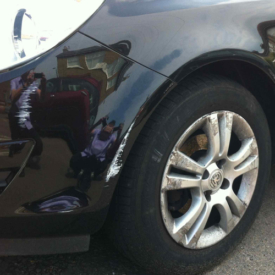
HAS your small fleet ever had its cars facing additional charges at the end of the contract hire period?
Just when you thought everything had been budgeted for you get an additional charge out of the blue.
end-of-lease damage charges collectively added up to £45 million to fleet budgets
Fair or not?
In 2012 the UK’s top 50 contract hire and leasing companies estimated end-of-lease damage charges collectively added up to £45 million to fleet budgets.
Jim McNally, asset risk manager at vehicle leasing and management company Alphabet, told the recent ACFO Conference for fleet and company car managers that operators needed to liaise with their vehicle leasing providers to control end-of-contract damage charges.

End-of-contract charges – or de-hire damage – is a compensation payment to leasing companies for returning a vehicle back to the condition outlined in a lease agreement.
Mr Mcnally, who is also chairman of the British Vehicle Rental and Leasing Association’s Residual Value and Remarketing Committee, told delegates: “Leasing companies don’t want to have end-of-contract charges. We would rather price for vehicle usage appropriately at the outset.
“If a fleet is going to use a vehicle in a quarry then don’t tell us that it will be used on the motorway because we will build the price strategy against that usage.”
He said: “Talk to your leasing provider who will structure a rental that works for you and them.”
Get to grips with the terminology
It’s called many things – all mean the same and relate to the company car’s condition at the end of the business car lease:
- De-hire charges
- Fair wear and tear charges
- End of lease charges
- Damage charges
Using the example of a BMW 320d Efficient Dynamics, Mr McNally said experts CAP predicted a residual value in ‘clean’ condition of £9950 at three years/60,000 miles (May 2013); £9400 in ‘average’ condition’ and £8800 in ‘below average’.
“A £1150 reduction on a car worth less than £10,000 is significant,” he said Mr McNally, and he urged business car managers and company car drivers to appraise vehicle condition up to three months prior to the end of lease termination.
“De-hire damage is the biggest cause of dispute between leasing companies and their customers. Inspecting vehicles 10-12 weeks before end of contract means fleet managers have the opportunity to mitigate end-of-contract damage charges.”







